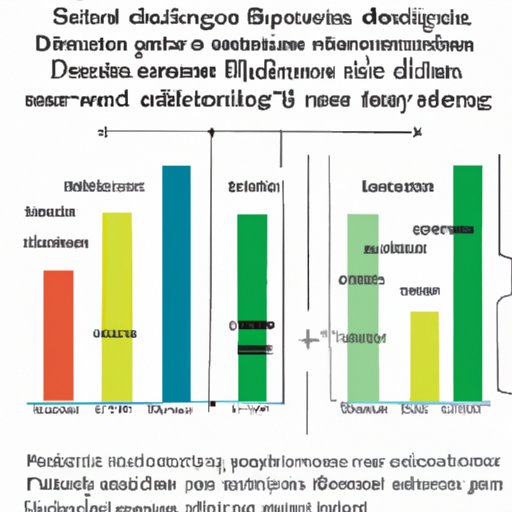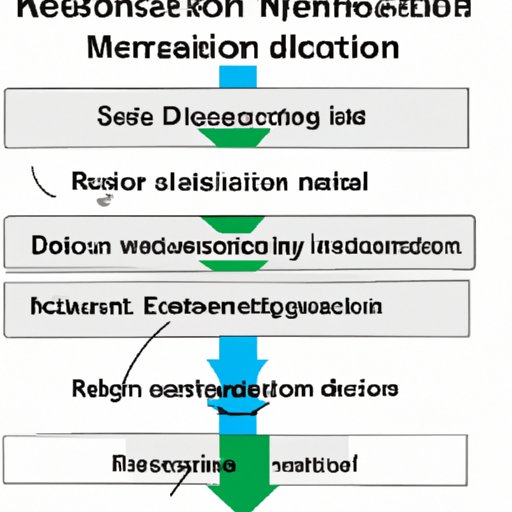Introduction
Variation is a vital concept in the sciences, playing an important role in scientific research and experimentation. But what does variation mean in science? This article will explore what variation means in the sciences, examining its definition, types, impact, and applications. By understanding this concept, scientists can better account for variability in their research, leading to more accurate results and conclusions.

Exploring the Meaning of Variation in Science
Variation is the difference between values within a certain set. In the sciences, this refers to the differences between data points or observations collected from a given experiment or study. Variation can be measured in a variety of ways, such as through standard deviation, coefficient of variation, or variance.
Variation can be classified into two main categories: natural and artificial. Natural variation occurs naturally in the environment and is typically caused by factors such as genetics, environment, and chance. Artificial variation, on the other hand, is caused by human intervention and is often used in scientific experiments to measure the effect of a certain variable.
For example, in a study of the effects of climate change on bird populations, researchers may artificially vary the temperature in different parts of the habitat to measure the birds’ response. By manipulating this variable, the researchers can observe how the birds’ behavior changes in different temperature conditions.

How Variation Impacts Scientific Research
Variation has a significant impact on scientific research and experimentation. Variability in data can lead to inaccurate results and incorrect conclusions, making it difficult to draw meaningful insights from the data. As such, it is important for scientists to understand how variation affects their research and to take steps to control for it.
In addition, variation can also have an impact on the data collection process. For instance, if a scientist is collecting data from multiple sources, they need to ensure that the data is consistent across all sources in order to accurately compare the results. If not, the data could be skewed due to variations in sampling techniques or measurement methods.
Understanding Variation’s Role in Science
When conducting scientific research, it is important to consider the potential sources of variation. These can include environmental factors, genetic differences, and random chance. Understanding these sources can help scientists better design their experiments and control for any potential sources of variation.
In addition, scientists must also consider how to control for variation in their experiments. This can be done by using appropriate sample sizes, measuring variables consistently, and using statistical models to account for any variability in the data. By taking these steps, scientists can ensure that their results are accurate and their conclusions are based on reliable data.
The Significance of Variation in the Sciences
Variation is an important concept in the sciences, as it can have a significant impact on the results of scientific experiments and the conclusions drawn from them. Variability can lead to inaccurate results and incorrect conclusions, making it important for scientists to understand how it affects their research and to take steps to control for it.
In addition, accounting for variation in experiments can also have benefits beyond just accuracy. It can help scientists identify patterns in their data and draw more meaningful conclusions from their research. Furthermore, it can also help scientists identify potential sources of error in their experiments and make adjustments accordingly.
Examining the Impact of Variation on the Scientific Process
Dealing with variation in scientific experiments can present a number of challenges. For instance, it can be difficult to identify potential sources of variation and measure them accurately. In addition, it can be difficult to control for variation in experiments, as some sources may be out of the researcher’s control. Furthermore, it can also be difficult to draw meaningful conclusions from experiments with high levels of variability.
To address these challenges, scientists must develop strategies for managing and controlling variation in their experiments. This can include using appropriate sample sizes, measuring variables consistently, and using statistical models to account for any variability in the data. By taking these steps, scientists can ensure that their results are accurate and their conclusions are based on reliable data.
Explaining What Variation Means for Scientists
Variation is an important concept in the sciences, as it can significantly influence the results of experiments and the conclusions drawn from them. Understanding the meaning of variation and how it affects scientific research is essential for scientists to conduct accurate and meaningful experiments. Furthermore, it is also important for scientists to develop strategies for managing and controlling variation in their experiments in order to ensure accurate and reliable results.
In addition, scientists must also consider the implications of variation for their data collection processes. By understanding potential sources of variation and taking steps to control for them, researchers can ensure that their data is accurate and their conclusions are based on reliable information.

Investigating the Definition and Uses of Variation in Science
Variation is an essential concept in the sciences, playing an important role in scientific research and experimentation. It is defined as the difference between values within a certain set, and can be classified into two main categories: natural and artificial. Variation can have a significant impact on scientific research, influencing the results and conclusions of experiments, as well as the data collection process.
In addition, understanding the sources of variation and taking steps to control for it can help scientists ensure accurate and reliable results. By doing so, scientists can draw more meaningful conclusions from their experiments and better identify potential sources of error in their experiments. Finally, it is important for scientists to recognize the importance of variation in their research and to develop strategies for managing and controlling it in their experiments.
Conclusion
Variation is a vital concept in the sciences, playing an important role in scientific research and experimentation. This article explored what variation means in the sciences, examining its definition, types, impact, and applications. By understanding this concept, scientists can better account for variability in their research, leading to more accurate results and conclusions.
(Note: Is this article not meeting your expectations? Do you have knowledge or insights to share? Unlock new opportunities and expand your reach by joining our authors team. Click Registration to join us and share your expertise with our readers.)
